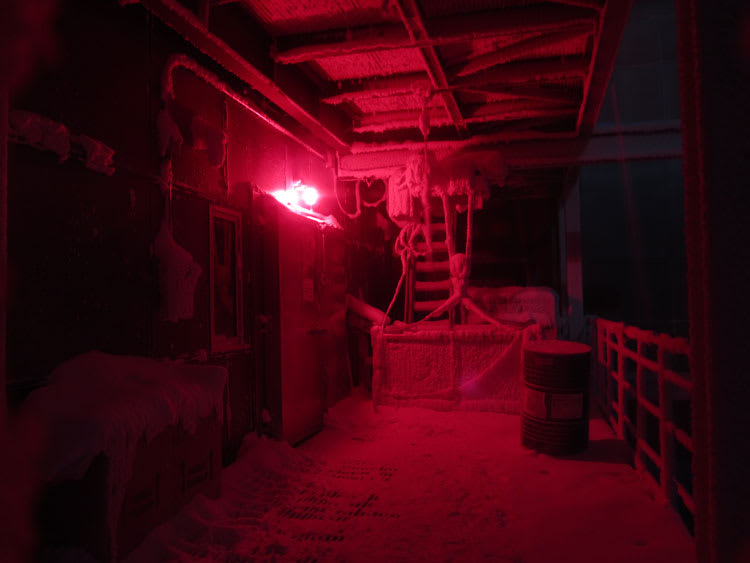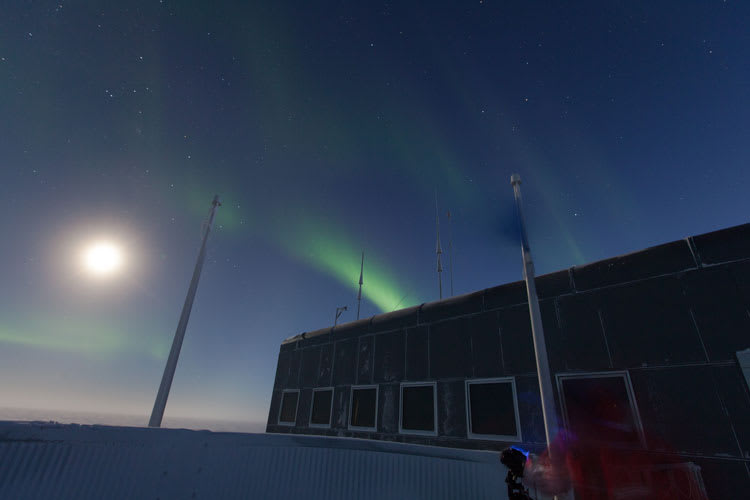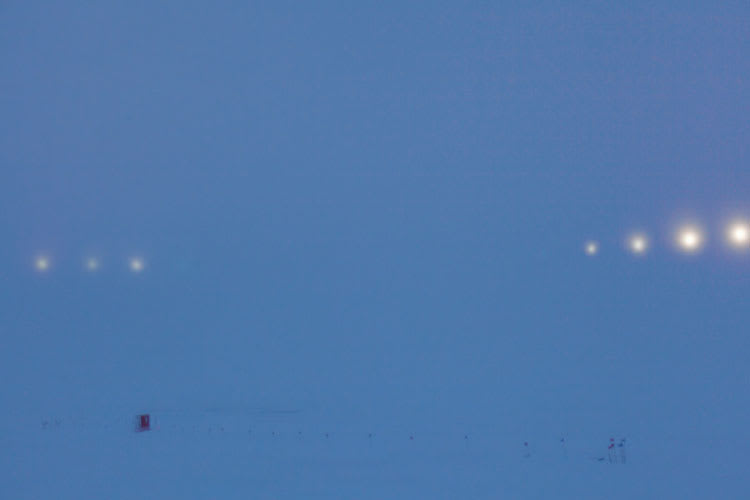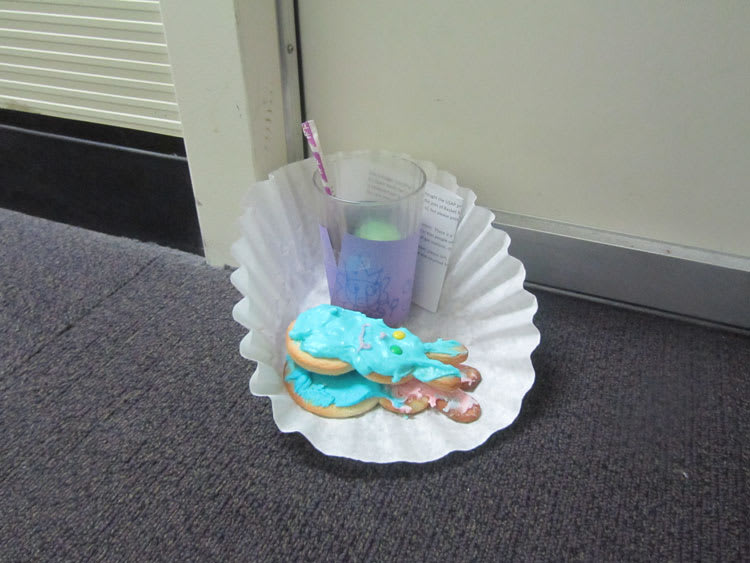
This is what the ICL porch looks like as it gets darker outside, bathed in red light (just two short weeks ago things looked a bit different). For the benefit of research projects that monitor the sky during winter darkness, outdoor lighting at the South Pole is minimized and kept to a red spectrum, which reduces interference. With no outside lighting, it can get quite dark, although there will still be light at times from stars, auroras, and the moon. Cloud cover, however, can diminish the ambient lighting; last week it hampered efforts at taking a good photograph of the recent lunar eclipse (see middle photo below). Unlike a solar eclipse, a lunar eclipse, which occurs two to five times a year and might last for hours, can be viewed from anywhere on the night side of the Earth, not just the South Pole. You can even plan for upcoming lunar eclipses—maybe the winterovers will get a better shot at the next one. Their week ended with treats of a different sort, left on their doorsteps by the Easter bunny, for a pleasant first-thing-in-the-morning surprise.


